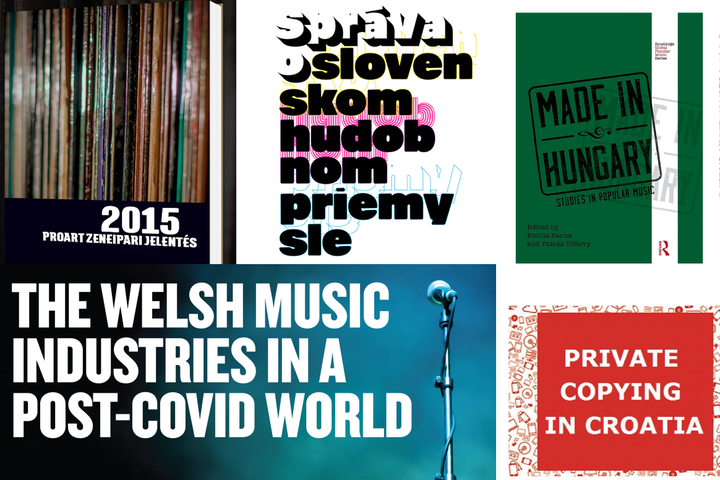Music Reports
 The royalty gap within Europe
The royalty gap within EuropeOur Demo Music Observatory is powering policy, business reports and scientific publication with high quality, internationally comparable data on
The observatory grew out of the Central and Eastern European Music Industry Databases out of necessity following a CISAC Good Governance Seminar for European Societies in 2013. The adoption of European single market and copyright rules, and the increased activity of competition authority and regulators required a more structured approach to set collective royalty and compensations tariffs in a region that was regarded traditionally as data-poor. We needed to collect and integrate data that is often collected in more advanced markets by government entities, and we needed to present them as evidence in the policy making and in courts.
Public Reports
The first Hungarian Music Industry Report, a 144-pages business strategy and policy advocacy report, which became the basis of annual reports in the Hungarian music industry.
The first Slovak Music Industy Report, a 227-pages advocacy report with business strategy and evidence-based policy recommendations. Several royalty pricing and other fact-based industry work was commissioned by Slovak stakeholders which are not publicly available. This report is based on reproducible research standards - i.e. most of the report can be automatically updated as new data comes in.
Private Copying in Croatia is an advocacy report for re-setting the remuneration of private copying, and measuring the value transfer to media platforms such as YouTube. In Hungary, more technical and detailed reports were made for Artisjus, Mahasz, EJI, Hungart and Filmjus, which are not available to the public. This is also a reproducible report.
Central & Eastern European Music Industry Report 2020 is the first Hungarian, Slovak, Croatian and Czech music industry reports are compared with Armenian, Austrian, Bulgarian, Lithuanian, Serbian and Slovenian data and findings. It put on stage on as a good example of evidence-based policy making on a two-day high-level stakeholder event jointly organized by Geothe-Institute and the DG Education, Youth, Sport and Culture of the European Commission with the Creative FLIP project. (See a brief summary of the presentation and our use case.) This is our first reproducible report that covert primary information flowing in in 12 languages.
The Welsh Music Industries In a Post-Covid World is first of a planned series of post-pandemic recovery reports created by Dr Paul Carr. While the UK Music Industry is generally seen among the world leader, it’s power is mainly concentrated in London and England. Wales appears to share more problems with emerging national music scenes like the Slovakian or Croatian — small, recently independent nations that are seeking their best way to place their national repertoire in an increasingly competitive regional and global music market.
Metropolitan Area, Regional, or Sub-National Reports: Because music and culture are often managed at the level of cities, regions and communities, we want to give you all the data on sub-national levels, whether for regions, metropolitan areas or smaller divisions.
Non-Public Reports
Our observatories do not only collect, but also integrate data. We own many data assets, we make many open data assets available, but we also can integrate highly proprietary data with our assets. Our novel approach compared to other observatories is that we can connect members of the observatory, join their data, create a new insight, and then close the data connection. This way data synergies can be exploited without the conflict of interest troubles related by change of data ownership.
Valuation Reports: for price reviews, copyright tribunals, competition cases, regulatory oversight. We want your evidence to stand a fighting chance against large teams of professional legal and economics teams on the other side with proper valuations and damage claims.
Advocacy Reports: We want you to be able to prove to your fans, the press, your economy minister that music in many countries has not been at the mercy of the taxpayer, but has been carrying far heavier tax burdens than manufacturers. We want to make your case that the music industry plays a vital role in the European economic recovery and job creation, because we can create economic impact assessments on GDP, employment, tax, import and export effects automatically.
Grant Reports: Ex ante grant design in a comprehensive, logical framework, supported by empirical evidence, artist and ecosystem data and needs, direct and indirect (effect) indicators for program controls. We would like to persuade grant managers that ex ante evaluation must be followed by ex post valuation. Original expectations must be contrasted with the effects of the grant and fed back to design better grants in the following year. (See more in Smart Grants)